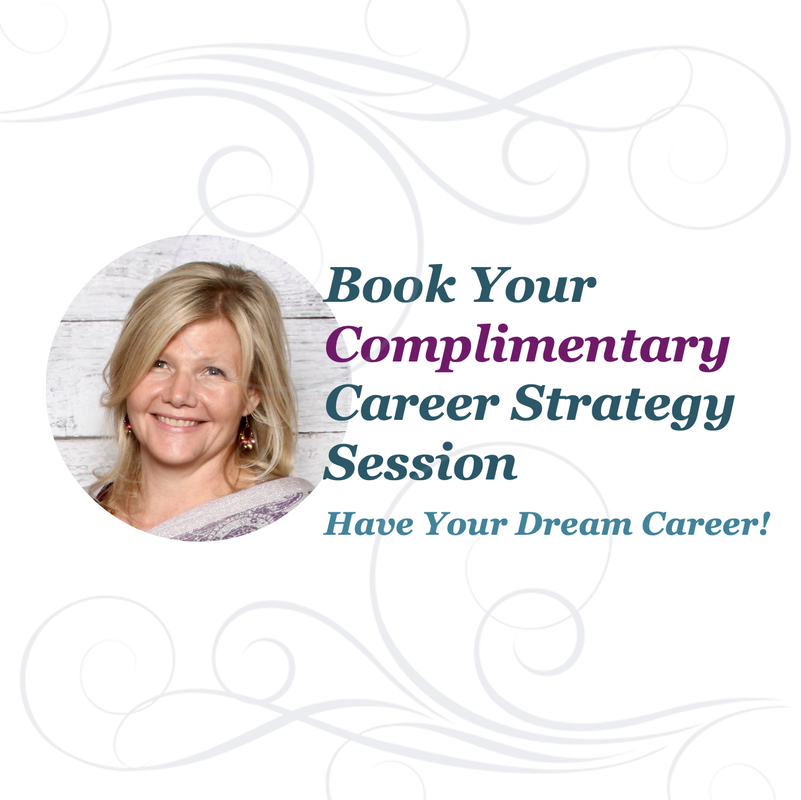|
Most of us have some type of ritual, in additional to our normal routine; routine is about getting things done …ritual is about caring for yourself. Ritual is something we need because it allows us to move into our work with more confidence, or comfort. As an example, my morning ritual is spending 10 minutes sitting comfortably in the silence of my still-sleeping household while holding my coffee cup, enjoying the warmth of it in my hands. Sitting quietly for this measure of time is something I really look forward to each and every day – I do this on the weekends too. All else can fall apart in my morning routine, but I’m OK if I get to have my quiet coffee moment – it sets me up for success in my work day in ways my routine just can’t.
Different parts of our day may have ritual in it, and we don’t even know it. While I was working in a corporate setting, I had someone to eat lunch with each day, and when she was transferred to another location, I really missed that time together, and the constancy of doing something that was a good break from work. After she moved, I ate lunch at my desk, and I had to reflect on why my afternoons seemed so long. Ritual can energize us, give us the permission we need to both take a well-deserved break and enjoy it. Rituals are important anchor points that allow us to gently move into “what is next”. My favorite late-afternoon ritual at work is to close down for the day, tidying up my desk, amending my “to do” list, and (the best part), hearing the “snuck” sound my computer makes as it closes for the night. That sound lets me close all the work “tabs” that are open in my mind, letting my thoughts turn elsewhere. I can embrace the commute home, shifting into an evening routine filled with loved ones and other tasks that keep our busy household going. When this ritual is disrupted (i.e. I leave work early or I am not in the office at the end of the day), I find my mind cluttered with lots of details and intellectual debris from my work-day, which impacts how present I can be for my family in the evenings. Take a look at your day, what rituals do you have that help support self-care, balance or peace of mind? If you look, you’ll find them (even if you may not have called them rituals). A ritual has positive impact in our day when we do it intentionally, letting it give us that break, or the opportunity to re-set. One person’s ritual can be another person’s obligation, so these are highly individualized ways of supporting ourselves in our days, no two are alike but all can provide a meaningful pause from our labours. As John Hench said “We don't have too much ritual in our life anymore. And these life symbols which people rely on to keep their feeling of well-being, that life is not too bad after all, are required more and more.” Embrace the rituals in your day. Expectations are really fascinating; they exist silently in our psyche, hidden from conscious view. They are sometimes so quiet you may not even know an expectation is in play; you might sense that something isn’t quite right, it may feel unnecessarily stressful (and you’re not sure why). Our expectations of others are often more visible to us, and still manage to cause the same complications when they are not being met. Unmet expectations (our own, or others of us) breed the conditions for us to react (rather than respond) to what we are experiencing. Reactions really mess with our sense of self and well-being. Wouldn’t it be easier if we could make these hidden expectations more visible? We can.
Enter mathematics. Stay with me, you are not going to do any actual math, but there is a mathematical concept we learned in grade school that flushes out a hidden expectation before it causes emotional upheaval. It is “greater than”, “lesser than” and “equal to”. Here’s how it can help. Begin by taking a few deep breaths to settle yourself into quiet contemplation; then look at your work day, consider the people you will be meeting with today, and then ask yourself “Do I feel ‘greater than’, ‘lesser than’ or ‘equal to’ this person?” The answers may surprise you. When we feel “greater than” someone it isn’t necessarily a bad thing. You may be training a new employee and so your knowledge and experience in your working environment is “greater than” theirs. However, there are times we feel “greater than” in a not-so-great way, like when you think of someone as “beneath” you …possibly when you see someone as very different from you (i.e. less mature etc.). In what circumstances does your less-than-great “greater than” show up at work? What expectations are woven into this belief? How might you be experienced when you feel “greater than” someone? Feeling “lesser than” someone at work is a very stressful circumstance. Feeling this way often sets self-expectations that are rigid, like “don’t screw up”, designed to help us move through interactions with this person …and impossible to meet. There may be many reasons why someone makes you feel “lesser than”; they may be an abrasive, or a toxic person. They may be a very nice person, and you’ve just psyched yourself out. At work, titles can often do this; I remember years ago meeting with a CEO for the first time at a job interview and feeling all kinds of “lesser than”. She was really nice. I did not get the job. It’s hard to showcase your strengths when you are feeling “lesser than”. Do you need to feel this way? What expectations are behind this belief? How well does this belief serve you in your work? When you experience “equal to” it is a much different experience. There is often confidence, and trust, in these relationships. Check in here, are any expectations present? We don’t often hold rigid expectations within relationships where we feel “equal to”. We don’t need to, we have built relationships that are mutually satisfying in “equal to”. These relationships can be with best friends, or casual acquaintances, and they support well-being. However, if there is a change to the context of these relationships, the relationship (and your expectations of it) need to be re-navigated (and possibly even re-negotiated). As an example, when you are promoted at work, and your friend is not (or vice-versa). Applying this mathematical concept to your relationships can proactively “flush out” any hidden expectations you may have, allowing you to work on key connections, helping them to grow towards “equal to” and empowering well-being, for yourself and others, at work. “My happiness grows in direct proportion to my acceptance, and in inverse proportion to my expectations.” - Michael J. Fox Nothing preoccupies us more than the state of not knowing. Some part of each and every day is devoted to the unending task of making the unknown, known (in ways big and small). Unable to see if we can plan something in our future (“Will I get the time off work?”). Not being sure if we can count on something (“Will they deliver what they’ve committed to on time?”). Not understanding how you are perceived by others (“Am I liked and respected in my work?”) can be very draining. We seek comfort in the familiar, in what is clear. Along the way our path is paved by small certainties, to capture the elusive “big” certainties in life. For example, we make decisions based on what we know to be true (even if it turns out we misunderstood or misjudged something). We form opinions based on understanding, but also on judgments and assumptions. We venture carefully into the unknown from the security of the known, and expect that the light we carry with us will always illuminate what we need to move forward safely and to achieve our intended outcomes. Often certainty demands a strategic focusing of that light in order to see clearly what it is we are trying to understand. In focusing that light (from a flood light to a beam), we make irrelevant many things, not always to our advantage because certainty is something we need to balance very carefully, for it gives us both favourable and unfavorable results. Certainty of opinion can be useful to others, when we are teaching, guiding or being our best selves. It can also be divisive, laying the foundations for judgment. Being certain of something can be a restful state, but not when it can only be maintained at the expense of another; every major conflict in the world has been based on someone’s certainty that they were right. Certainty can become a demanding taskmaster that forces us to trample on our own values and principles in order to maintain the assuredness we have become overly attached to (or overly identified with). We reach for certainty frequently when we are afraid; what that fear is depends on the circumstance. Fear of being wrong. Fear of being right. Fear of losing something you value. If you think about all the emotional and circumstantial states you want to avoid, the list is really quite endless. This is why (from time to time) looking at your motivations to reach certainty allows you to see what is driving this need. There is a wealth of information here that can help you to better know and understand yourself so you can make decisions from a place of wisdom and compassion (even when things are still uncertain). By holding on to something too tightly we destroy that which we seek to embrace. We need to balance our need for certainty with the impact we have on ourselves and others. Be open to what uncertainty has to teach you. Be curious as to why a need to know is asserting itself at this time, and then choose kindness, first towards yourself and then towards others. “Uncertainty is a natural and guaranteed part of life. A journey isn’t intended to be seen from a birds-eye view. It’s rather meant to be lived in the moment through our own experiences. We don’t need to know what lies beyond what’s right in front of us. We’ll reach it eventually, in the right time.”
I came across a quote on Linked In the other day and it landed with a gut-punch; “Don’t limit your challenges, challenge your limits” (Jerry Dunn). It perfectly, and succinctly, describes a very human reaction to being (or trying not to be) overwhelmed. All at once I could feel the energy I used to resist anything that was even remotely disruptive, and what it cost me to be so fixated on protecting the status quo. Curiosity, growth and well-being become collateral damage when our first response is one of resistance. How much of the energy we use in a day is directed towards reducing disruption, protecting future well-being, at the cost of our well-being in the present? A large part of this is driven by assumptions and expectations. It sounds like this: “Nope, no thank-you I cannot take on anything further right now, I am barely managing with what I have now. Thank-you, goodbye.” It’s a lot like chasing a door-to-door salesperson off your door-step, you aren’t even listening to what they have to say, you just want them to go away. Trying to stay ahead of whatever challenges interrupt your day (so they cause no more time-suck, de-motivation, or loss of focus) is an unforgiving process; meaning it just never ends…and it doesn’t actually work. It assumes you are always at a limit of some kind. Once disrupted, you cannot un-disrupt yourself. The resistance you throw up to counter the challenge is often more disruptive and demanding than listening thoughtfully to the challenge in the first place, and being at your “limit” has a nasty side effect – it disconnects you from being your best self…from being fully present and open to what is really going on. We forget that listening, being open to what is going on is not the same as saying “yes” to more work or to being overly accommodating. What listening does give you are options. Listening means you have more information, and then you can consider it for action, allowing you to see not only disruption, but understand what may in fact be an opportunity. Challenging your limits sounds a lot like embracing chaos, but it is less about being so open you overwhelm yourself, and more about being fully present in your work, so you can be more understanding with what is happening, because opportunity is often disguised as a challenge. You can miss that next great career move, or damage a valuable connection, without meaning to when you operate from a place that feels at the edge of your limits. When you’ve listened, been open to exploring, you are no longer teetering on an edge, but giving yourself room to maneuver. And if you do need to say “no” you will be more credible and more compassionate in doing so, keeping your relationships intact, possibly even strengthening them. Challenging your limits means you pause long enough to understand what it is all about before deciding what to do. “We don’t grow when things are easy; we grow when we face challenges” ~ Anonymous
|
|
|





